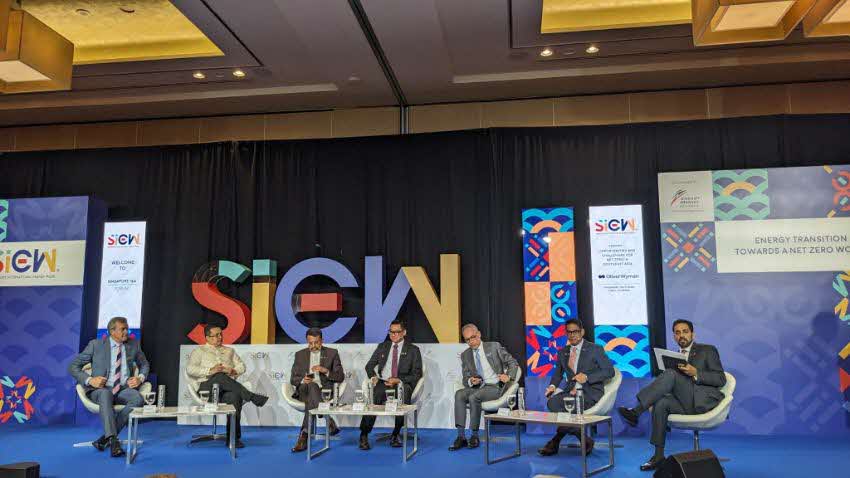Government leaders and energy experts discuss opportunities and challenges in creating a net zero world for the region.

L-R: Hon. Reece Whitby MLA, H.E. Felix Fuentebella, Ravi Menon, Darmawan Prasodjo, Egon van der Hoeven, Raymond B. Ravelo, Abhi Bhuchar (moderator)
Central to today's discussions at the Singapore-IEA Forum Session 1 was the vital role that governments play in steering the energy transition. Panellists also discussed the pivotal challenge of securing financing to advance towards a cleaner, more sustainable energy landscape.
Tailoring the energy transition to individual countries
"The world that we live in today is clearly unwell. The quicker we are able to abate our greenhouse gas emissions for ourselves and for our children, the better," said Raymond B. Ravelo, First Vice President and Chief Sustainability Officer, Meralco.
However, for developing countries like the Philippines, the cost of energy may become too burdensome for many to afford. Echoing this sentiment, Darmawan Prasodjo, President Director, PT Perusahaan Listrik Negara, highlighted the need to align the energy transition with economic growth.
Egon van der Hoeven, APAC Vice President (Business Development), ExxonMobil Low Carbon Solutions, concurred, noting that as middle-income populations across Southeast Asia grow, energy demand will continue to remain high. ExxonMobil anticipates that energy usage will continue to be supplied by fossil fuels. Although the energy transition needs to happen, stakeholders must consider affordability, sustainability, access and security of energy.
The expanding role of governments
Panellists unanimously agreed that governments could do more to foster the energy transition. Hon. Reece Whitby MLA, Minister for Environment; Climate Action; Racing and Gaming, Western Australia, emphasised that as governments, "we have an obligation to be part of the solution" and added that "governments have an obligation to set clear parameters and direction and inspiration".
Western Australia is blessed with abundant natural resources such as sunlight and wind, which the Government can leverage to generate energy and transport to other countries. Mr Whitby also mentioned liquefied natural gas (LNG) and natural gas as vital transition fuels. He stressed the importance of partnering with other countries to apply Australia's expertise in transporting LNG to the field of hydrogen.
Similarly, Mr Ravelo said the public sector can establish frameworks and policies for clean technologies to flourish, while Ravi Menon, Managing Director, Monetary Authority of Singapore, stressed the need for clear government policies and detailed roadmaps on the path to net zero. These would help financial institutions determine whether the project risks are worth undertaking.
Financing as the cornerstone of the energy transition
Mr Menon noted that governments should establish transition pathways and targets and highlight investment opportunities to reassure financial institutions that there is a "larger game plan within which this project sits".
He also underscored the importance of setting a realistic price for carbon and suggested starting small and moving towards a target carbon price. Singapore plans to reach a carbon price of S$50-80 per metric tonne of carbon emissions by 2030.
Mr Menon noted that the cost of capital for many energy transition projects is too high, and many projects are only marginally bankable. He emphasised the need to blend private and public capital and de-risk projects through governance, arrangements and policy clarity. Singapore is proposing a blended finance platform to attract concessionary capital. "It's much better to put in S$1 of public capital to de-risk a project and bring in S$5 of private capital than to just invest S$1 in a project," he said.
In summary, the panellists concurred that fostering public-private partnerships and collaboration among governments and countries is crucial for sharing knowledge, expertise and resources. This is expected to better facilitate Southeast Asia's transition towards a net zero future.
Follow us on X (formerly Twitter) and Telegram to get the latest updates.